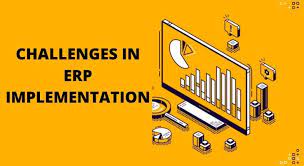Dealing with ERP Challenges in GST Implementation

India is a country with unity in diversity since one can come across a myriad of languages, cultures, religions, and festivals that blend together to unite the vast nation. However, diversity of taxes has been restricting free trade across states thus causing a lot of hassles and complexities for entrepreneurs and consumers alike.
Consolidation of taxes
Goods and Service Taxes or GST is a major attempt in unifying a huge assortment of central as well as state taxes into one tax system.
GST is a revolutionary and historical tax reform to subsume central taxes such as excise duty, surcharges service tax, central sales tax customs duty with state taxes including Value Added Tax, purchase tax, entertainment tax, and several surcharges state cess and entry taxes.
GST not only paves way for uninterrupted trade between states and within the country but also mitigates business operating costs. Organizations and traders can experience predictable and reduced tax burden with absence of cascading taxes.
Role of IT teams
Enterprise Resource Planning or ERP systems serve as foundation for implementation, streamlining, and control of diverse business processes. IT personnel need to understand their roles in terms of implementation of new GST regime in existing ERP platforms. Although it appears that most of the changes in ERP systems in relation with updating of taxes would be as simple as click of the button, it is easier said than done in most of the cases.
In addition to dealing with a large number of regulations and compliance requirements one needs to ensure that the current ERP systems are ready for the new challenges of GST regime. One must also appreciate that unless there is a cohesion and coordination among IT, tax, and all other departments, it would not be possible to execute any change in ERP.
There has been a considerable shifting of dates over past several months in terms of GST implementation and there is a palpable confusion about what objectives need to be achieved by ERP to gain seamless GST-readiness right from the day one of GST enforcement.
IT teams need to upgrade ERP projects by fixing and designing new processes and functions to be in line with stringent requirements of GST system. The ongoing effort is not only cost intensive but also consumes significant time.
Impact of GST on ERP systems
It is essential for businesses to revisit three vital modules of Enterprise Resource Planning system. These include modules of material procurement, supply chain, and financial management and must be focused for restructuring since GST regime is bound to influence these.
It is now clear that GST council has approved different slabs for different rates of taxes. It is therefore crucial for implementing a broader tax base. One should also appreciate that in the GST regime virtually every type of product or service is going to be taxed. In addition to this each and every transaction such as manufacture, sale, provision, or distribution is going to be covered within the tax net and all these events will be perceived by GST as supply events.
There is a going to be a significant burden On IT staff as there is need to create new conditions, tax codes, and information update for every single Stock Keeping Unit (SKU). Every ERP process that has to deal with taxes must be re-designed so that it considers GST.
There can be a significant change in the way two geographically isolated units of the same organization pay taxes while executing interstate supply between its units. The tax would be jacked up to a whopping 18 percent from the present level of only 2 percent.
Hence ERP processes must be designed to treat changes in taxes wherever and whenever these are applicable. This obviously requires a thorough understanding of supply events that will changed from CST to IGST since the event of sale will be treated as event of supply in GST system.
The above change will influence the way orders are booked, goods received, movement of material, and other cases that need to be reported for sake of regulatory compliance.
Speaking of tax compliance, it is expected that ERP produces utilizable data, which can be applied while creating tax invoices.
Creating data during the compliance stage can result in mismatches and delays in relation with bills that have been already created. ERP system should be programmed in such a way that it generates relevant entries and GSTN in terms of outgoing and incoming material so that precise tax invoices are generated.
It is expected that tax teams are able to analyze events that will remain unaffected in GST regime so that these will be optimized under new tax system and will have no logical relevance. This will pave way for IT and tax teams to execute testing as well as implementation of plan to realize its applicability.
By centralization of tax processes through build and test one can liberate from a perpetual cycle of design-implement-test-re-evaluation-design. There is need to isolate tax sensitive data from ERP so that ERP tasks are no longer impacted by governance or changes in compliance and risks.





